Why Delhi is gripped by chikungunya fears
- Published
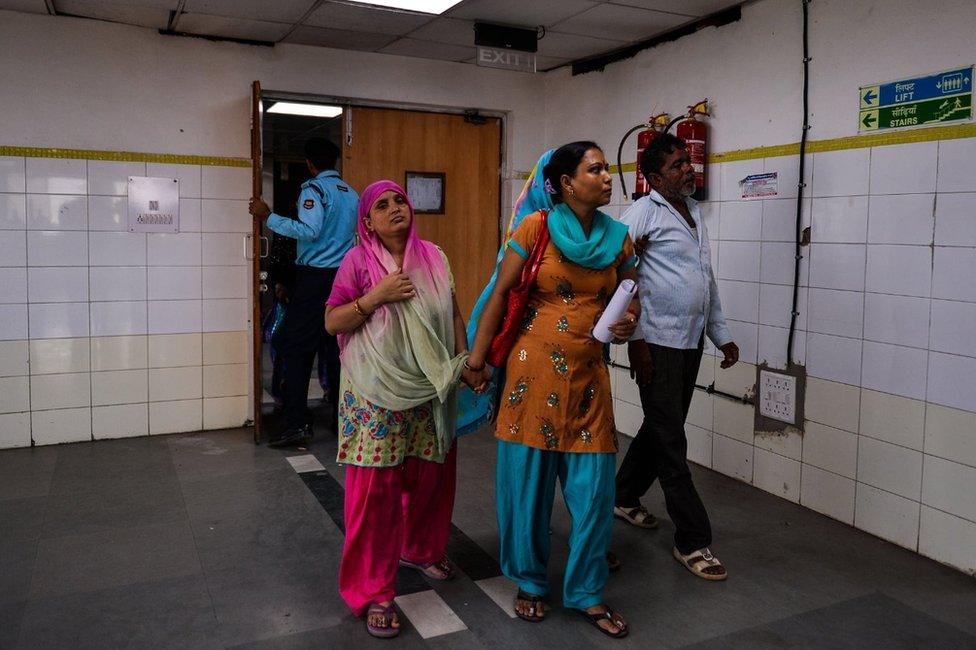
More than 1,000 cases of chikungunya have been registered in Delhi
India's capital Delhi is battling one of its worst outbreaks of the mosquito-borne chikungunya virus - with more than 1,000 cases reported across the city. The BBC's Ayeshea Perera explains the outbreak in Delhi and why chikungunya is worrying so many people.
How bad is the situation in Delhi?
More than 1,000 cases of the illness have been registered in the city.
Local media have reported that 10 people in the city have also died of chikungunya-related complications, although this is yet to be officially confirmed. The illness is largely non-lethal although the WHO says, external that in older people it can contribute to the cause of death.
India's health minister JP Nadda told reporters that the government was investigating to see if the virus could be linked to the deaths, as many of those who died were already suffering from other illnesses such as kidney disease and high blood pressure.
The larger problem, however, seems to be the effect the debilitating nature of the virus is having on the population of the city.
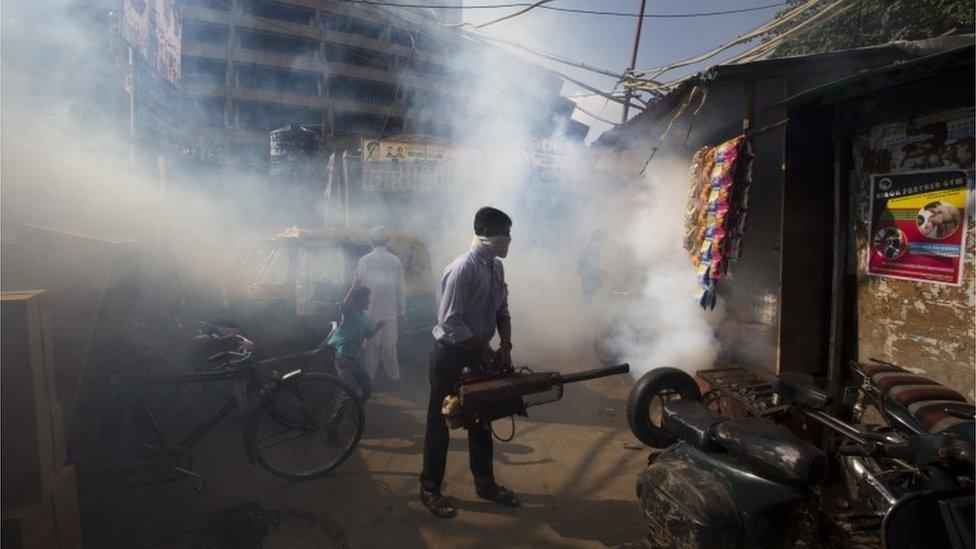
Officials have been fumigating densely populated areas of Delhi
The Indian Express newspaper reported that a number of public sector projects were missing important deadlines, external as the virus had severely depleted workforces. The report added that many migrant labourers from other Indian states - who make up the bulk of Delhi's construction workforce - have been forced to return home. This has also hit their personal incomes.
Chikungunya also severely affects the quality of life of those who contract it - in many cases severe joint pains persist even after the fever has subsided. The Times of India wrote about the severe difficulties faced by one household , external where all 13 members of a family contracted the illness at the same time.
How is the government dealing with it?
It is unclear why Delhi has been so severely affected this year, but heavier than usual rainfall coupled with the large number of construction projects in the city could be a factor, as this can create many stagnant pools of water where mosquitoes can breed. Delhi also has a large number of open drains.
The local government has been strongly criticised by media for what is being seen as a lax attitude to the outbreak. Chief minister Arvind Kejriwal is not in the city and the state health minister was ridiculed for saying the outbreak was a media creation.
Following the outcry, the Indian government has asked local authorities to provide them with a detailed report about the situation.
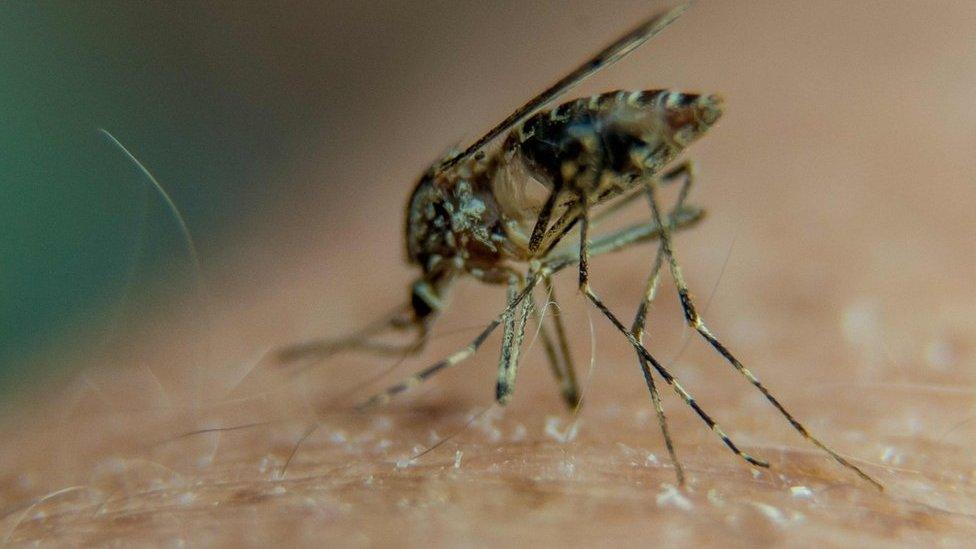
The disease is spread by mosquitoes that bite and pass on the virus
Federal health minister JP Nadda told reporters that they had also offered help in terms of providing more equipment and medicine to local officials but had been told the situation was under control.
What is chikungunya?
Chinkungunya is a viral disease spread by mosquitoes that bite during daylight hours. It cannot be transmitted from person to person.
The name derives from a word meaning "to become contorted" from the African Kimakonde language.
Symptoms include the sudden onset of fever and joint pain, particularly affecting the hands, wrists, ankles and feet.
Most patients recover after a few days but in some cases the joint pain may persist for weeks, months or even longer.
How to prevent and control the illness
Health officials advise wearing long-sleeved clothing and trousers that minimises skin exposure, and to wear insect repellent at all times in areas where the mosquitoes involved are found.
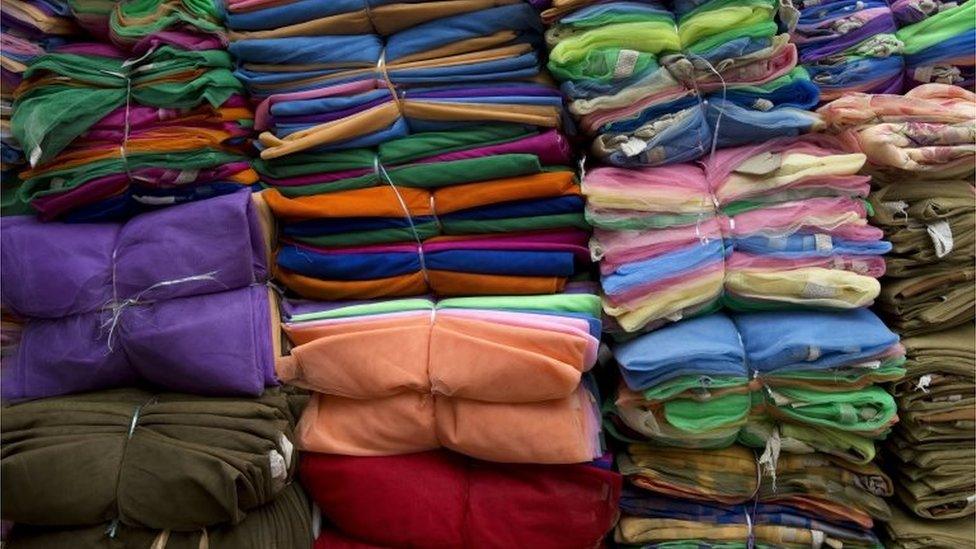
Mosquito nets are displayed for sale at a wholesale market in the capital
Two of the species most commonly involved in spreading the virus are Aedes aegypti and Aedes albopictus, which can also transmit other mosquito-borne viruses, including dengue.
Check your home and work spaces for water-filled containers that can facilitate mosquito breeding. Make sure that bathrooms are completely dry and that toilet seats are kept down when not being used.
Rooms should be fitted with screens to prevent mosquitoes from entering and use mosquito coils or other insecticide vaporisers to reduce indoor biting.
- Published11 September 2014
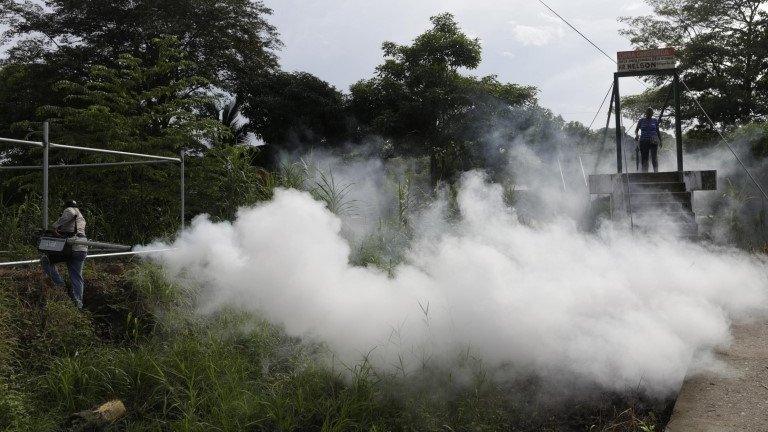
- Published2 February 2016